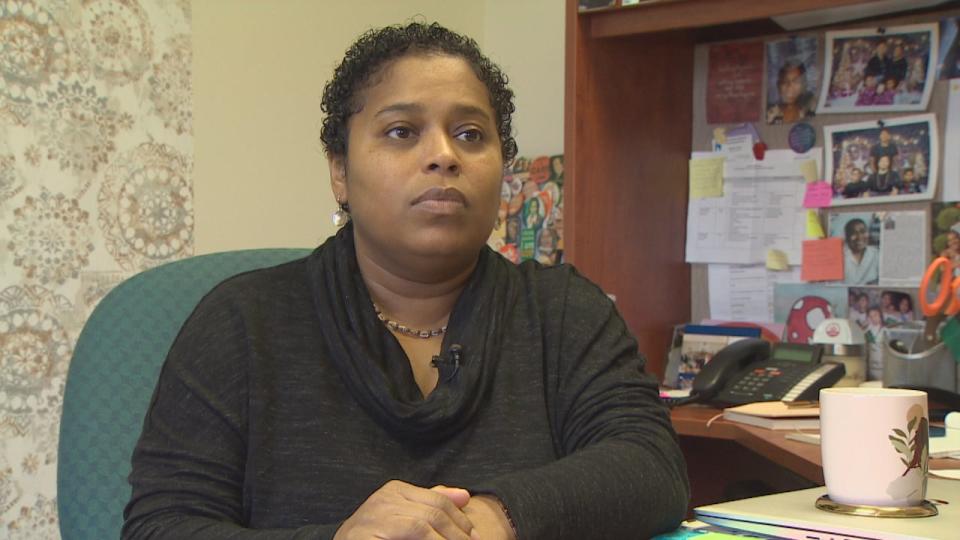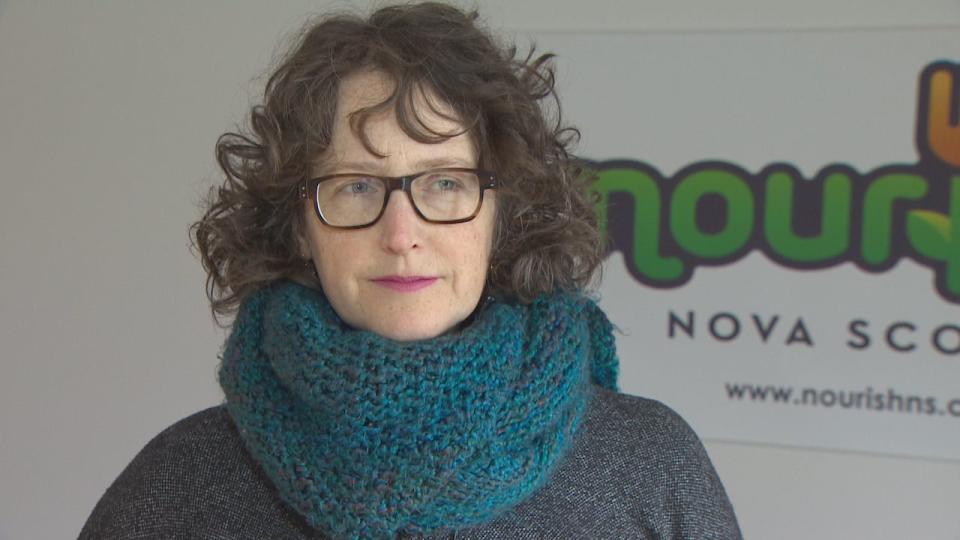School staff struggle to fill gaps as more students show up hungry, advocates say

Ann Marie Danch said it started with giving a snack to a student who didn't have anything for lunch.
Then the longtime educational assistant began to notice many others were showing up to school hungry.
Before long, she said she and other staff at Highland Park Junior High in Halifax were feeding 30 to 50 students hot meals every day at breakfast and lunch.
Data from the province shows there's been a significant increase in people looking for better access to food. This comes at a time when there is growing pressure on food banks across Nova Scotia, resulting in more students going to school hungry, according to Feed Nova Scotia.
Danch said she and the other school staff applied for grant money, raised money and shopped for deals all in their spare time to sustain the programs. They used a Crock-Pot and single-burner stove to cook all types of meals, she said.
The pandemic arrived, the hot meals stopped, teachers burned out, and more students came to school with empty stomachs. she said. She said staff still try to do what they can.
"I don't think there's a teacher in this building that doesn't have a stash [of food]," Danch said.

Ann Marie Danch said there isn't a teacher at her school who doesn't have a stash of food to help students who show up with empty stomachs. (Patrick Callaghan/CBC)
Nick Jennery, Feed Nova Scotia's executive director, told a provincial committee earlier this month that the charity provides food boxes to schools in the absence of universal food programs. He said the boxes help teachers who discreetly give food to students who show up to school with none.
"I know teachers are certainly feeling that extra pressure," said Ryan Lutes, president of the Nova Scotia Teachers Union.
Universal food programs in schools would relieve that pressure on both teachers and students, so everyone can focus on learning, Lutes said.
He said staff at some schools have taken it upon themselves to start food programs or provide snacks like granola bars, but it's not sustainable.
"It's a Band-Aid solution and it could be a lot better with some government support to provide full-time universal breakfast and lunch programs," he said.
Growing demand for food
Demand for a provincial initiative that helps organizations improve access to food for vulnerable Nova Scotians quadrupled last year.
There were 124 applications to the Community Food Access and Literacy program in 2023, according to documents the Nova Scotia NDP obtained through a freedom of information request shared with CBC News.
That's approximately 100 more requests than the previous year, the documents say. More than a quarter of the requests came from schools.
"If we're hearing from schools that food is the number one priority for a lot of students, that should be our priority," said Suzy Hansen, NDP MLA for Halifax Needham. "A universal school food program would do just that."

NDP MLA Suzy Hansen said she was taken aback when she learned Feed Nova Scotia drops off boxes of food at schools, she said. (Patrick Callaghan/CBC)
Hansen sits on the province's community services standing committee, where Jennery spoke last month.
She said she was stunned to hear the charity is dropping food off at schools for hungry children.
"I was taken aback. I had to take a minute before I asked my question," Hansen said.
In a statement, a spokesperson for the province said it is working with the federal government to create a universal food program in Nova Scotia.
In 2021, the Liberals promised to commit $1 billion over five years to create a national school food policy. Canada is the only G7 country without a national school food program.
In the meantime, the province's statement said breakfast food is in all schools and food is made available to students "through food pantries, open access fridges and innovative programs like the fresh food cart pilot."
Stretched thin
Current food programs aimed at youth in Nova Scotia are burning through their budgets due to the increased cost of food, the head of a provincial non-profit said.
"The concern is that we're hearing back from the folks that we're trying to support, 'We're afraid of being over budget,'" said Lisa Roberts, executive director of Nourish.
Nourish was established in 2012. It supports all regional education centres in Nova Scotia with food programs.
"The fact that there isn't adequate or a secure budget inhibits all of those efforts," Roberts said.

If there's a food program in a school, participation has gone up, Nourish executive director Lisa Roberts said. (Patrick Callaghan/CBC)
Roberts said more families need access to food programs but many schools don't have cafeterias or facilities to make food.
This would make it difficult to implement universal food programs in every school, Danch said.
She said she's also concerned any new initiative introduced by the province would be put on the shoulders of existing staff.
"In many of the schools, we can't find the bodies to be lunch monitors. We can't find substitute teachers. Where are we going to find the manpower to provide a hot lunch every day?"
MORE TOP STORIES


